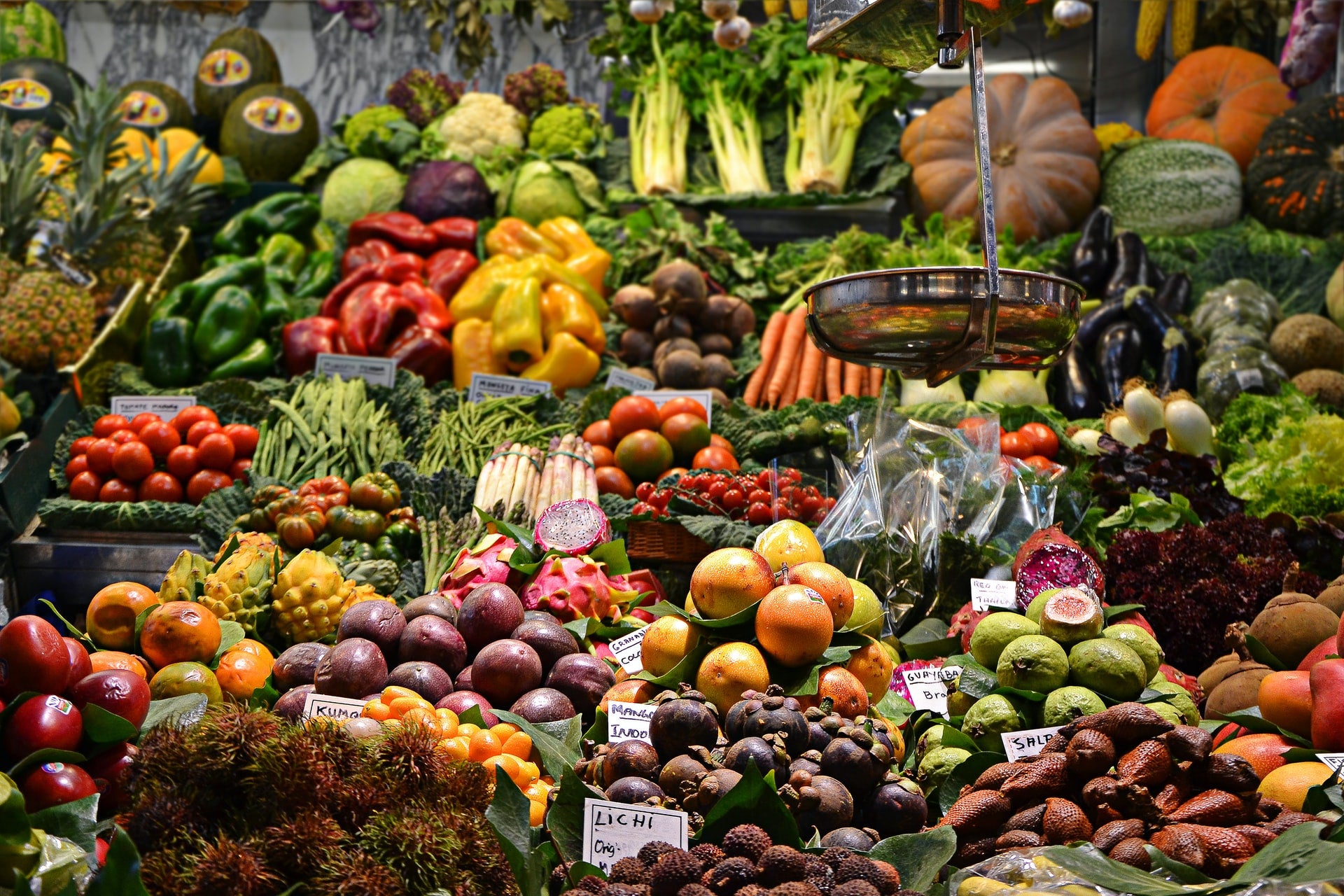COVID-19. Influenza. Cold. The list of viruses we’re facing this winter doesn’t make for pleasant reading. Taking reasonable precautions to limit your exposure can help, but you also need to make sure that your immune system is ready to tackle anything you come in contact with. While there is no single magic bullet, here are three additions to your daily diet that can help you stay healthy.
1) Go Dark
No, we’re not talking about turning off your electronic devices and going off the grid, although come to think of it, that’s not a bad idea either. Rather, what we’re suggesting is that you start seeking out dark-colored fruits and vegetables at the grocery store. The chemicals that give some produce their rich hue are called anthocyanins. These don’t exist for aesthetics alone but are also powerful antioxidants that prevent damage that can be caused by free radicals and limit the kind of chronic inflammation that cause bacteria and viruses to thrive.
A paper published in Nutrition Reviews revealed that berries offer a bevy of health benefits. For example, cranberries have been shown to reduce the duration and severity of the common cold, blueberries increase the amount of “good” gut bacteria lactobacilli and bifidobacteria, and black raspberries and grapes even show promise for complementing pharmaceutical-based cancer treatment. The authors also found that the high phytochemical content of goji berries, blackberries, and red raspberries support “general strengthening of the adaptive immune system.”
It’s not just only fruits that offer immunity-boosting benefits. Vegetables such as eggplant, purple cauliflower, and red potatoes also contain anthocyanins and other flavanols that will keep your immune system in high gear. Getting other color onto your plate can help too. A research team from Ankara University in Turkey wrote that “carrots have antioxidant, anticarcinogenic, and immune system enhancing properties,” while green vegetables like bok choy and broccoli stimulate better communication between immune-related cells.
2) Drink Up Your Immunitea
OK, it was a bad pun and that’s not how you spell “immunity,” but we couldn’t resist because when it comes to hot wintry drinks that support optimal immune function, nothing comes close to tea. By now, it’s likely you’re aware of green tea’s healthful properties, as it has received a lot of attention as a so-called superfood. The key to green tea’s health benefits is a group of compounds called catechins. These help your immune system detect, identify, and destroy viruses, have an antibacterial effect, and may even help keep your cholesterol and blood pressure levels within healthy ranges. While it does contain some caffeine that can help sharpen your focus, green tea also has a relaxing effect due to the L-theanine that it contains, which is used in many sleep supplements.
White tea doesn’t get as much attention as its green cousin, but it’s just as powerful from an immunity perspective. As white tea is dried during a minimal production process, it retains a higher level of certain polyphenols than other types of tea. Perhaps that’s why it has been shown to have such a strong impact on preventing cell mutation and also contains an abundance of proanthocyanidins, which protect the cardiovascular system. Another plus for white tea is that because it’s typically lower in caffeine than black or green varieties, you can probably brew a mug later in the afternoon or even in the evening without disrupting your sleep.
Black tea is no slouch when it comes to immunity, either. It’s a rich source of quercetin, which is also found in apples, tomatoes, and red wine (cheers!). According to a study published in Nutrients, this potent flavonoid helps regulate the activity of disease-fighting leukocytes and cytokines that signal your immune system to respond to threats. Black tea also contains a high level of the polyphenol kaempferol, which has disease-fighting properties.
While studies disagree about whether Brits are enhancing or detracting from the benefits of their “cuppa” by adding milk to it, researchers from the University of Aberdeen in Scotland have found that steeping black tea for longer increases the absorption of its polyphenols. Another way to enhance your black tea is to add a chai mix, as ginger, cloves, and cinnamon all support immune system function.
3) Go with Your Gut
Did you know that 70 percent of immune system-related tissues actually reside in your gut? Or that you have over 100 trillion bacteria inside your body that impact your response to infection and illness? The easiest way to tap into and positively impact this complex system is to start consuming more probiotic and prebiotic foods.
Probiotics have become big business in recent times, with the global market now valued at $56.6 billion a year according to Statista. Yet as beneficial as certain strains can be, it’s easy to succumb to decision fatigue when confronted with all the different options and varying CFU counts (is 50 billion better than 20 or 5 billion?). Plus, taking a daily pill can get pretty pricey. Another strategy for improving your gut health is to eat more probiotic foods instead. These include a spicy cabbage blend called kimchi, fermented pickles that will upgrade your next hot dog or burger, kombucha, kefir, and Greek yogurt. Eating any or all of these will increase the diversity of your microbiome, and as a result, support immunity.
Though they sound like some sort of medicine, prebiotics are in fact a kind of dietary fiber. Over the past few years, a growing body of scientific evidence has built up to suggest that simply including more fruits and vegetables in your diet is an effective method for ingesting more prebiotics, not to mention cheaper than paying for the kind that come in a bottle. To set the stage for a study published in Food Science and Biotechnology, a research team had participants drink a mixture of kale, broccoli, apple, and lemon. After three weeks, the amount of “good” bacteria in their guts had increased, as had the diversity of their microbiota. So try eating one or two more servings of fruit and veggies a day.



















